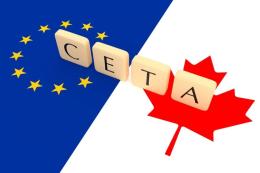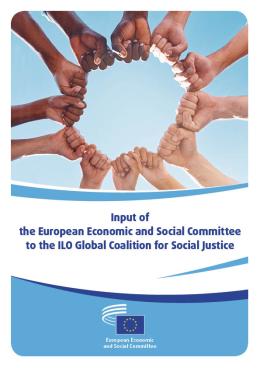European Economic
and Social Committee
Relaciones transatlánticas
La UE, los EE. UU. y Canadá comparten los valores de la democracia, los derechos humanos, la libertad económica y política y se ocupan de cuestiones comunes en materia de política exterior y seguridad. Los EE. UU. y Canadá constituyen dos de los principales socios comerciales de la UE, y son también socios en la conformación del ordenamiento jurídico internacional. Las relaciones transatlánticas actuales tienen lugar en un nuevo entorno y se enfrentan a retos cada vez mayores. Consideramos que la participación de la sociedad civil en esta relación proporciona una garantía de que las relaciones transatlánticas son capaces de responder a las expectativas públicas y contribuir eficazmente a la conformación de una cooperación mutuamente beneficiosa.
El Acuerdo Económico y Comercial Global entre la UE y Canadá (AECG) y el Acuerdo de Asociación Estratégica fueron firmados el 30 de octubre de 2016. Buscaremos una participación constante de la sociedad civil en la aplicación de estos acuerdos. En estos momentos, las negociaciones sobre una Asociación Transatlántica de Comercio e Inversión (ATCI) entre la UE y los EE. UU. están paralizadas. No obstante, las negociaciones sobre la ATCI contribuyeron al fortalecimiento de los vínculos entre la sociedad civil de la UE y los EE. UU. y a la definición de los puntos de vista de la sociedad civil sobre cómo debe ser la futura relación comercial entre la UE y los EE. UU. No deberían perderse estos logros. Nuestro Comité de Seguimiento de las Relaciones Transatlánticas fue creado en septiembre de 2014 con el mandato de supervisar los vínculos transatlánticos con la sociedad civil,





